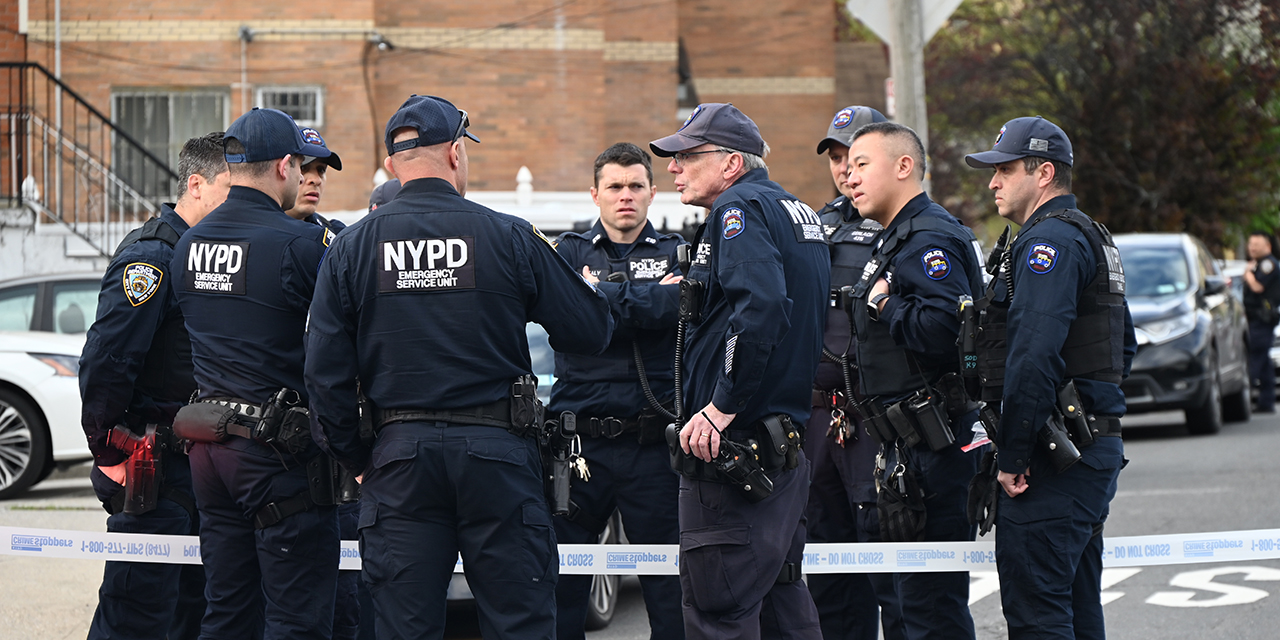On the night of April 4, three suspects connected to a carjacking and shooting crashed a car in my neighborhood of Venice Beach, taking off on foot. For hours, sirens wailed, choppers flew overhead, and police warned residents to stay indoors, given that the suspects were at large and likely armed. According to progressive ideology, these long and difficult manhunts could be avoided altogether if Los Angeles County would move to a “cite and release” policy.
Its name derived from the “catch and release” policy in effect at America’s southern border, “cite and release” is the latest progressive proposal for urban areas plagued by criminal mayhem. Calling overcrowding in Los Angeles County jails a humanitarian crisis, Hilda Solis and Lindsey Horvath, members of the L.A. County Board of Supervisors (BOS), introduced a motion to depopulate the jail system by making permanent the Emergency Bail Schedule—a pandemic-era policy that freed individuals held on bail for both felonies and misdemeanors. Under “cite and release,” police would issue a “ticket” or citation for suspected unlawful conduct but would not bring the suspect to jail for a formal booking. Suspects get released on the condition that they make a signed promise to show up to their court date.
Progressives see multiple benefits deriving from these programs. For instance, it frees up time for law-enforcement officials, who no longer have to arrest suspects, and it reduces overcrowding in jails, which are no longer needed for booking and intake processes. With violent crime in Los Angeles soaring, though, this does not seem like the right time for social experiments.
Among its directives, the Solis and Horvath motion requested that the L.A. County sheriff review its “shorts” release policy—starting with individuals incarcerated within its jails system—to find further opportunities to modify time-served requirements. The motion also called for citing and releasing individuals with aggregate bail amounts set at $50,000 or below. According to the Los Angeles County Felony Bail Summary, bail for the following offenses fall under that threshold: possession of firearm by a felon, assault with a deadly weapon, assault with a firearm, assault with chemicals, extortion and criminal threats, burglary with explosives, recklessly causing a fire with great bodily injury, and vehicular manslaughter (i.e., driving a vehicle with gross negligence). Common sense would suggest that these offenses warrant a more serious response than a citation.
The fundamental role of bail is to help ensure that people accused of crimes do not leave town or miss their assigned day in court. Bail allows the justice system to ensure the presumption of innocence while still protecting the interests of the public. But progressive advocates seeking an end to cash bail, such as the ACLU, believe that bail disproportionately affects poor people, nonwhites, and the disabled, making it more likely that they will be railroaded into convictions. Leaving aside the merits of these arguments, reforming the criminal justice system cannot be done at the expense of public safety.
L.A. County Deputy District Attorney Jonathan Hatami expressed opposition to the motion, saying that a cite and release policy for bail amounts set at $50,000 or less would gravely endanger women and children at risk of domestic and sexual abuse. “If you report abuse, such as a sexual assault or child abuse, and the police come and arrest your abuser, the BOS is telling Law Enforcement to just give the abuser a ticket and release him/her back into the community,” he said.
In L.A. County, an overwhelming number of such crimes would be eligible for cite and release, including domestic violence; child abuse; battery; sexual battery; violation of a protective order; pimping a minor (aged 16 or older); possession of GHB (a so-called date-rape drug) with intent to commit sexual assault; child stealing; contact with a minor to commit sexual offense (with a prior); incest; sodomy (for victims under age 18); oral copulation (for victims under age 18); possession, distribution, or control of child pornography; and elder abuse.
Hatami, who recently announced his intent to challenge the George Soros-funded district attorney George Gascón, is a 17-year veteran of the Los Angeles County District Attorney’s Office who has spent much of his career prosecuting child physical and sexual abuse cases. Commenting on the cite and release motion, he said: “That is a soul crushing message to victims of domestic violence and child abuse who actually are brave enough to report their abuser to the authorities. And, it’s worse that this proposal was placed on the agenda during a month when we are talking about child abuse prevention.” (April is National Child Abuse Prevention Month.)
Within hours of the cite-and-release motion appearing on the agenda, public comments flooded in criticizing Solis and Horvath for putting the rights of criminals over law-abiding citizens and crime victims. In response, Solis announced that she would pull the motion, noting the concerns her office had received “from a variety of stakeholders.” That’s an understatement. But while she and her colleagues have backed down this time, they will likely try again.
Photo by Joe Sohm/Visions of America/Universal Images Group via Getty Images





